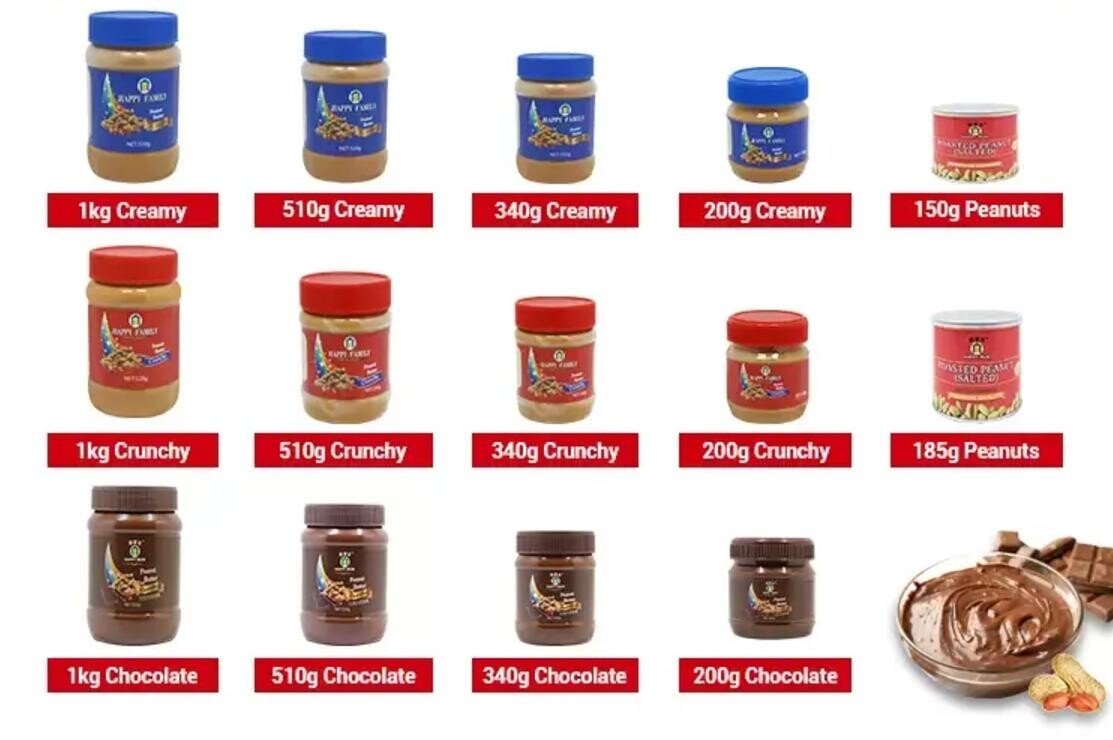
- Can I Put Sesame Oil on My Face?2026-02-04As the search for natural skincare solutions continues, many people are asking, "Can I put sesame oil on my face?" Sesame oil, derived from pure, selected sesame seeds, has been a staple in Asian cuisines for its rich flavor and health benefits.
- Can I Put Sesame Oil in Ramen?2026-02-04As culinary experimentation becomes more popular, many home cooks and chefs wonder, "Can I put sesame oil in ramen?" Sesame oil is a flavorful ingredient known for its rich, nutty taste, making it an excellent addition to many dishes.
- Can Diabetics Eat Sesame Oil?2026-02-04As health-conscious choices become increasingly important, many people wonder, "Can diabetics eat sesame oil?" Sesame oil has been a staple in various culinary traditions, especially in Asian cuisines, known for its rich flavor and numerous health benefits.
Almond vs. Peanut Butter: Is Almond Butter Better Than Peanut Butter?
When it comes to nut butter, is almond or peanut butter more popular among consumers? Both options are adored for their luscious textures and rich flavors, along with versatility in many recipes. Even though they are much alike, almond butter and peanut butter still differ from each other. This article will give a comprehensive guide about almond vs. peanut butter, comparing their differences in nutrition, taste, texture, etc.

Almond Butter vs. Peanut Butter Nutrition
When examining these two nut butter varieties, nutrition plays a key role. Both offer a host of benefits, but they each shine in slightly different ways. Here's a breakdown of some key nutrition facts:
Protein
Both almond and peanut butter are good vegetable protein sources. In the comparison of almond vs. peanut butter regarding the protein aspect, peanut butter is slightly higher than almond butter.
Fat Content
Almond butter wins in heart-healthy fats, as it contains rich monounsaturated fats that can help promote cardiovascular health. At the same time, even though peanut butter also contains rich monounsaturated fat (but typically slightly less than almond butter), it has twice the amount of saturated fat and lower omega-3 fatty acids.
Fiber
Almond butter takes the lead again in the battle of almond butter vs. peanut butter in terms of fiber content. When serving the same amount, almond butter can nearly double the fiber content of peanut butter. Individuals looking to improve digestion or maintain steady energy levels might prefer almond butter for this reason.
Sugar and Carbs
Both almond butter and peanut butter contain relatively low natural sugar and carbohydrate levels. However, many commercially available versions include added sugars to improve taste, which might not be well-received by consumers aiming to limit their sugar intake.
Key Micronutrients
Some notable nutrients in almond butter are vitamin E, magnesium, and calcium, making it a nutrient-dense choice that supports healthy skin, bones, and overall well-being.
Peanut butter is also rich in nutrients like niacin, folate, and vitamin B6, which are essential for brain function and energy production.
Both options are undeniably nutritious, offering a wealth of health benefits that are known to all. The final choice between almond butter and peanut butter may depend largely on which nutrition, like protein, fiber, or essential vitamins, one prioritizes.
Almond vs. Peanut Butter: What Are Other Differences?
While nutrition is essential, there are additional factors to consider when consumers choose between almond and peanut butter. Here's a closer look at some practical and sensory differences:
Taste and Texture
Almond butter is often favored for its subtly sweet, nutty flavor with a slightly grainier texture. It can bring a delicate, natural richness to dishes. Meanwhile, peanut butter extinguishes itself with a more robust, savory flavor with a creamy and silky texture that's often smoother than almond butter. For many, its nostalgic taste wins hands down.
Versatility in Recipes
Both nut butter options are versatile, but their unique flavors lend themselves to different specific recipes. For instance, almond butter pairs beautifully with smoothies, oatmeal, and lighter dishes, and peanut butter, thanks to its bold taste, shines in classic sandwiches, baked goods, and as a base for sauces like satay.
Cost and Availability
Usually, peanut butter is far more affordable and widely available. For anyone on a budget, it's the clear winner and potentially has a broader consumer base. Almond butter, on the other hand, tends to be more expensive due to the higher cost of almonds and their processing. It's worth the splurge for some but may not suit everyone's grocery budget.
Digestibility and Allergies
Allergy and digestibility are also crucial factors that consumers will consider when wandering between almond and peanut butter. Peanut allergies are more common, affecting millions worldwide. For individuals with peanut sensitivities, almond butter is the safer choice. Almond butter is also easier to digest for some people, but those allergic to tree nuts may avoid it.
In all, despite the differences between almond vs. peanut butter, these two types of nut butter are worth investing in for their respective highlights and needs.
Find Healthy Peanut Butter from JOLION Foods

If you are looking for nutritious peanut butter, look no further than JOLION Foods. Known for high quality and rich taste, JOLION Foods offers a range of healthy, flavorful peanut butter for different restaurants and supermarkets. Furthermore, JOLION Foods provides customizable OEM & ODM services, allowing you to create private-label sauces and products that align perfectly with your brand's values!
Conclusion
Is almond butter better than peanut butter? From the comparison of almond vs. peanut butter above, we can know that there's no one-size-fits-all answer. Generally, almond butter wins over peanut butter, as it contains a bit more beneficial nutrition, but peanut butter also captures people's hearts for a more affordable price and classic taste.
Specializing in high-quality sauces and spreads with customizable options, JOLION Foods is your trusted partner in bringing top-notch goods to your kitchen or business. Want to learn more about JOLION Foods' products and services? Contact us today and discover how we can elevate your offerings!
Start Your Seasoning Sauce Business by a Free Quote
GET FREE QUOTES
If you are interested in our services, let's have a try on the first project
